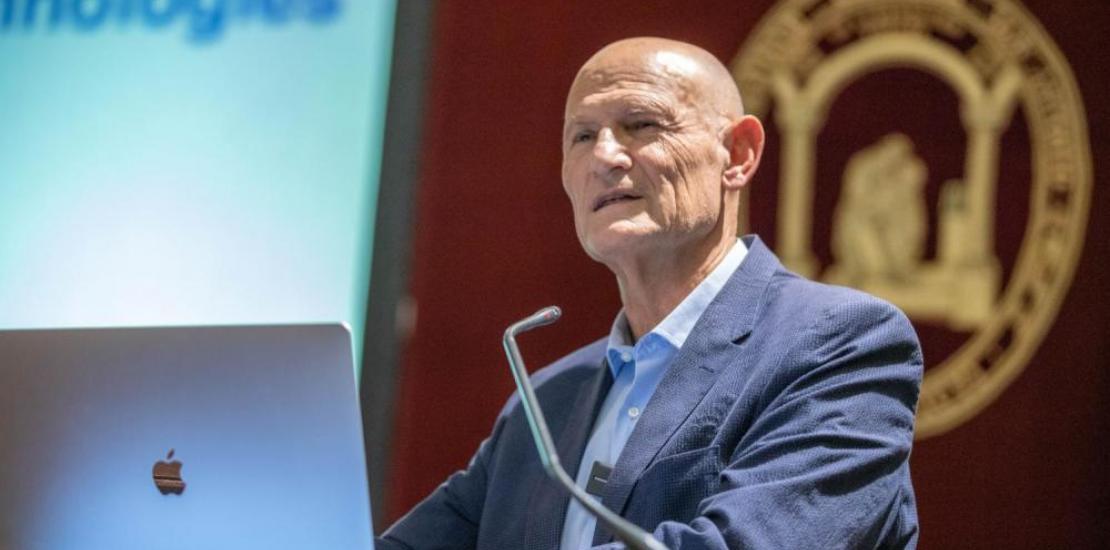The Cell scientific journal lists one of Izpisúa's research studies among the exceptional works of the last 10 years
The special edition Cell Line 2014-2024 highlights the major advances published by the journal over the last decade, including the cell partial reprogramming discovered by the UCAM Professor of Developmental Biology, a process directly linked to the delay of ageing.
‘In vivo amelioration of age-associated hallmarks by partial reprogramming’ is the name of the paper by Juan Carlos Izpisúa, UCAM Professor of Developmental Biology and Founding Scientist and Director of the San Diego Institute of Sciences, Altos Labs, which Cell includes in its special edition on the exceptional scientific research published in the journal over the last 10 years. The research led by this Spanish scientist was published in 2016 in the journal Cell and brought us closer to understanding the cellular processes involved in ageing and possible therapeutic approaches that could delay the onset of age-related diseases in order to improve human health.
As part of the activities organised to celebrate its 50th anniversary, the prestigious journal includes in its Cell Line 2014-2024 a timeline that highlights ‘a set of extraordinary scientific discoveries that have shaped our understanding of biology and enabled dazzling advances in both fundamental and translational biology’. It is worth remembering that, back in 2021, the prestigious American weekly newspaper TIMES considered Juan Carlos Izpisúa's advances in generating human organs for transplants to be one of the top 10 health research projects that had taken place that year in the world and, previously, when the first results of this same study were published, in 2018, he was also recognised for it as one of the 50 most prestigious scientists in the world in the field of health.
Among the landmark papers selected for this special edition of Cell are 26 Nobel-Prize-winning articles, including the discovery of microRNAs by Ruvkin and Ambros, the recipients of the 2024 Nobel Prize in Medicine or Physiology. In addition, this edition includes a pioneering work on cancer cell regulation of ferroptosis (2014) and the development of the Perturb-Seq platform (2017), as well as two papers with immediate clinical implications: the mechanism of SARS-CoV-2 cell entry (2020) and the demonstration that chemically induced iPSCs can cure type 1 diabetes (2024). The issue also features essential review articles on CRISPR-Cas9 genome engineering, stress signaling in plants, non-coding RNA, ageing, Alzheimer’s disease, cancer, etc.
It was in December 2016 that Juan Carlos Izpisúa presented at the UCAM Campus in Murcia that he and his team of scientists had discovered that the signs of ageing could be reversed through partial cellular reprogramming. This technique meant that adult human cells cultivated in the laboratory could be rejuvenated without becoming stem cells, that is to say, maintaining their specialisation. This technology was later extended to organs and tissues and, finally, to complete organisms, managing to increase the lifespan of aged mice by 30%.
Dr Izpisúa Belmonte states that ‘we are deeply grateful to José Luis Mendoza, whose vision and generosity have made it possible for our work in the laboratory to contribute to a better understanding of the underlying molecular causes of frailty and the decline of human health. We are convinced that the continued support given to science and education at UCAM, which José Luis Mendoza began, will continue to promote and inspire discoveries that improve human health.




